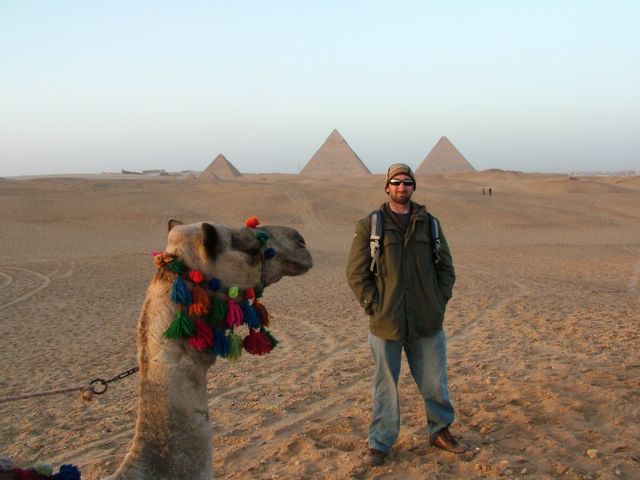Australia's current backwards immigration policy - 'Howard's present is our past'
Hi,
this article highlights how far backwards Australia has gone on immigration under John Howard's leadership.
Tony
Howard's present is our past
http://www.theage.com.au/news/Opinion/Howards-present-is-our-past/2005/06/15/1118645864721.html
June 16, 2005
Arnold Zable hopes for the day we again have a prime minister who can fully embrace an inclusive and plural society.
History has a habit of repeating itself. In 1964, the newly appointed immigration minister, Hubert Opperman, held discussions with prime minister Robert Menzies in which he argued for significant reforms to the White Australia policy and a less discriminatory approach to non-European immigration.
The 1964 meeting has uncanny parallels with recent discussions between Petro Georgiou and his fellow Liberal dissidents, and Prime Minister John Howard, over immigration policies. Like Menzies, Howard has held fast to the old regime and, like Menzies, he is convinced he has public opinion on side. But in the longer term the new reforms prevailed.
This incident is one of many documented in a new book by La Trobe University historian Gwenda Tavan, The Long, Slow Death Of White Australia. Tavan traces the gradual erosion of Australia's race-based approach to immigration and the actions of senior bureaucrats, commentators, academics, church leaders and a range of pressure groups such as the Immigration Reform Group, in facilitating the change. The White Australia policy was finally abandoned by the actions of both ALP and Coalition governments in the 1970s.
Gough Whitlam and Malcolm Fraser were the first Australian prime ministers to embrace a non-discriminatory policy and the ideal of multiculturalism. By the 1980s, Australia had developed one of the best resettlement schemes in the world and a plural society, internationally admired and respected.
It is hard to believe, in retrospect, from Tavan's account, that in the early 1950s new rules required that mixed-race people could only be admitted to Australia if they provided genealogies that proved they had either three European grandparents or two European and two half-caste.
Tavan's book helps place Howard's approach to immigration in perspective. We can see the degree to which he has wound back the clock after almost a decade in power. Before Tampa appeared on the horizon, the Coalition Government had cut benefits to migrants, cut the numbers to the annual refugee intake and family reunion schemes, and cut support to multicultural institutions. Howard also gave tacit support to the anti-Aborigine and anti-Asian views of Pauline Hanson and, in 1999, introduced temporary protection visas for asylum seekers found to be genuine refugees, rather than offering permanent visas as had been the case until then.
Australia became the only Western country with indefinite long-term mandatory detention, a system that has driven some detainees to madness and the brink of suicide. By October 2001, Howard was able to declare, after the children overboard affair: "I do not want people like that in Australia." In a departure from the recent past, populist politics reigned supreme.
There is another side to the story. Tavan's study highlights the actions of individuals who, with the benefit of hindsight, can be seen as visionaries.
In 1947, for instance, Methodist minister the Reverend Alan Walker published a pamphlet in which he argued against the White Australia policy on moral grounds at a time when it was fully endorsed by most Australians. Walker believed that the policy had helped shape a parochial Australian soul. A new policy that did not discriminate on the grounds of colour or race would, said Walker, allow more Australians to know nationals of other lands, and deepen our emotional life, extend the range of our imagination and give new horizons to our mind.
Another forward thinker, future deputy leader of the ALP Jim Cairns, wrote in the Argus newspaper in June 1954, that Australia could be a bridge, geographically and spiritually, between East and West. He pointed out that the White Australia policy was the main obstruction to such a bridge.
Again there are parallels with contemporary events. There have been many individuals who have promoted a more inclusive vision of Australian society at a time when asylum seekers have been denied their basic human rights. Among politicians they include Liberal dissidents Petro Georgiou and Judi Moylan, Australian Democrats Andrew Bartlett, and the ALP's Carmen Lawrence.
The new bridge-builders include national organisations such as Rural Australians for Refugees and support groups throughout the country. In Melbourne they include the Fitzroy Learning Network, the Asylum Seeker Resource Centre, the Hotham Mission and the Victorian Foundation for the Survivors of Torture among many others. They encompass the many Australians who have sent letters of support to detainees in outback centres such as Port Hedland and Baxter, offshore centres on Nauru and Christmas Island, and city centres such as Villawood and Maribyrnong. It includes the growing numbers of Australians who are desperate for an act of compassion that would put an end to mandatory detention and to lives wasted in the limbo of temporary visas.
These individuals have forged enduring friendships between cultures and faiths at a time when, after September 11, 2001, they are sorely needed. They have, in turn, become welcome guests in the temporary homes of new arrivals from Afghanistan, Iran, Iraq and other Middle Eastern countries. They have discovered their common humanity.
Perhaps, one day, we will again have a prime minister who can fully embrace an inclusive and plural society based on the recognition that we are, in essence, a land of indigenous peoples and immigrants, a new world with an ancient past.
Meanwhile, we rely on the efforts of advocates and support groups with an alternative vision, and on the efforts of dissident backbenchers. We also need studies like Gwenda Tavan's to learn of the hard-won reforms that took Australia beyond the racially based policies of the past.
Arnold Zable is an author and refugee spokesman for the writers' association International PEN. He will launch Gwenda Tavan's The Long, Slow Death Of White Australia at Readings' Carlton store tonight.


0 Comments:
Post a Comment
<< Home